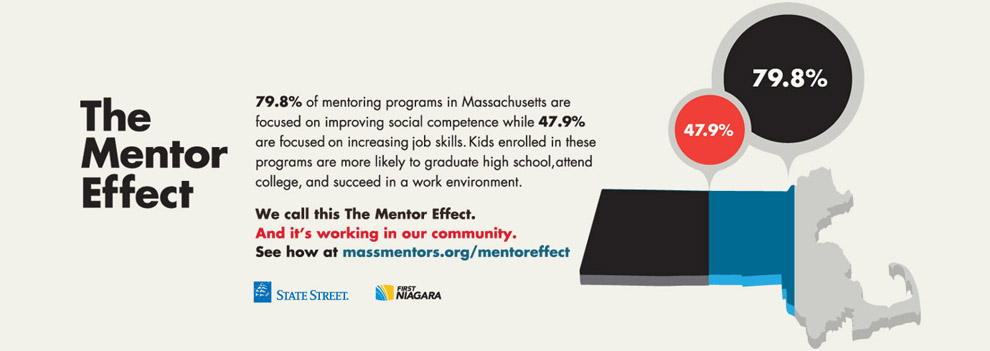As part of our 20 Challenges in 2012 initiative to celebrate Mass Mentoring’s 20th anniversary, we are releasing a series of challenges to address key goals of mentoring in Massachusetts. Goal six is 20 ways that communities grow with mentoring. The Highland Street Corps Ambassadors of Mentoring have researched 20 ways that mentoring provides positive social benefits that strengthen schools, families and communities. You can read more about their findings here.
This guest post is from Julie Muller, an Ambassador at Big Brothers Big Sisters of Massachusetts Bay.
 The college admissions process can feel like a maze. From applications to financial aid, there are many things to learn about what it takes to gain admission to a college or university. For students whose parents have not gone to college, the process can be even more of a daunting task.
The college admissions process can feel like a maze. From applications to financial aid, there are many things to learn about what it takes to gain admission to a college or university. For students whose parents have not gone to college, the process can be even more of a daunting task.
First-generation college students face many challenges when it comes time to start preparing for higher education. Students whose parents did not go to college often have less support from their parents to go to college and to take the necessary steps to prepare for college. According to an article by Jennifer Engle, first-generation college students are less likely to take advanced courses that would prepare them for college coursework. Also, first-generation students tend not to have the information on how to apply to college and financial aid as much as those students whose parents went to college. The amount of support and encouragement a student receives from adult figures in their lives greatly affect their educational aspirations. High-quality mentoring is a helpful tool that can inform and assist first-generation students in college access.
High-quality mentors can play an important role in a first-generation student’s life by simply having a conversation about the student’s plans for after high school. Discussing college with mentors can generate interest in going to college in students whose parents have not gone to college. According to the report, The American Freshman, 20.5% of first-generation college students cited encouragement from a role model or mentor was a very important reason for going to college, as opposed to 14.9% of students whose parents did attend college.
Having a mentor can spark an interest in academic endeavors that may not have been encouraged to the mentee before. According to the Big Brothers Big Sisters’ Youth Outcome Report, 71.7% of community-based little brothers and sisters maintained or improved their educational expectations. 75.4% of school-based little brothers and sisters also maintained or improved their educational expectations.
There are many ways a mentor can encourage or discuss college with his or her mentee. Simply asking what they aspire to do after high school can spark a conversation on the mentees’ thoughts and ideas about post-secondary education. If you are a college aged mentor, a tour of your campus or talking about your experiences can help a mentee discover what his or her own ambitions are.
High-quality mentors not only assist first-generation students in the college process but also help the community. Mentors encourage first-generation students to think about post-secondary educational opportunities, which lead to higher earning potential and higher level jobs. This helps a community’s growth and vibrancy. A high-quality mentor not only helps students but also the whole community.
Source: “Postsecondary Access and Success for First-Generation College Students,” by Jennifer Engle (2007). Retrieved from: American Federation of Teachers
Source: “The American Freshman: National Norms for Fall 2005,” Prepared by the Staff of Cooperative Institutional Research Program (2005). Retrieved from: http://www.insidehighered.com “Aiding First-Generation Students”
Source: Big Brothers Big Sisters’ Youth Outcome Report: Executive Summary, January 2012. Retrieved from: Big Brothers Big Sisters’ Youth Outcome Report
